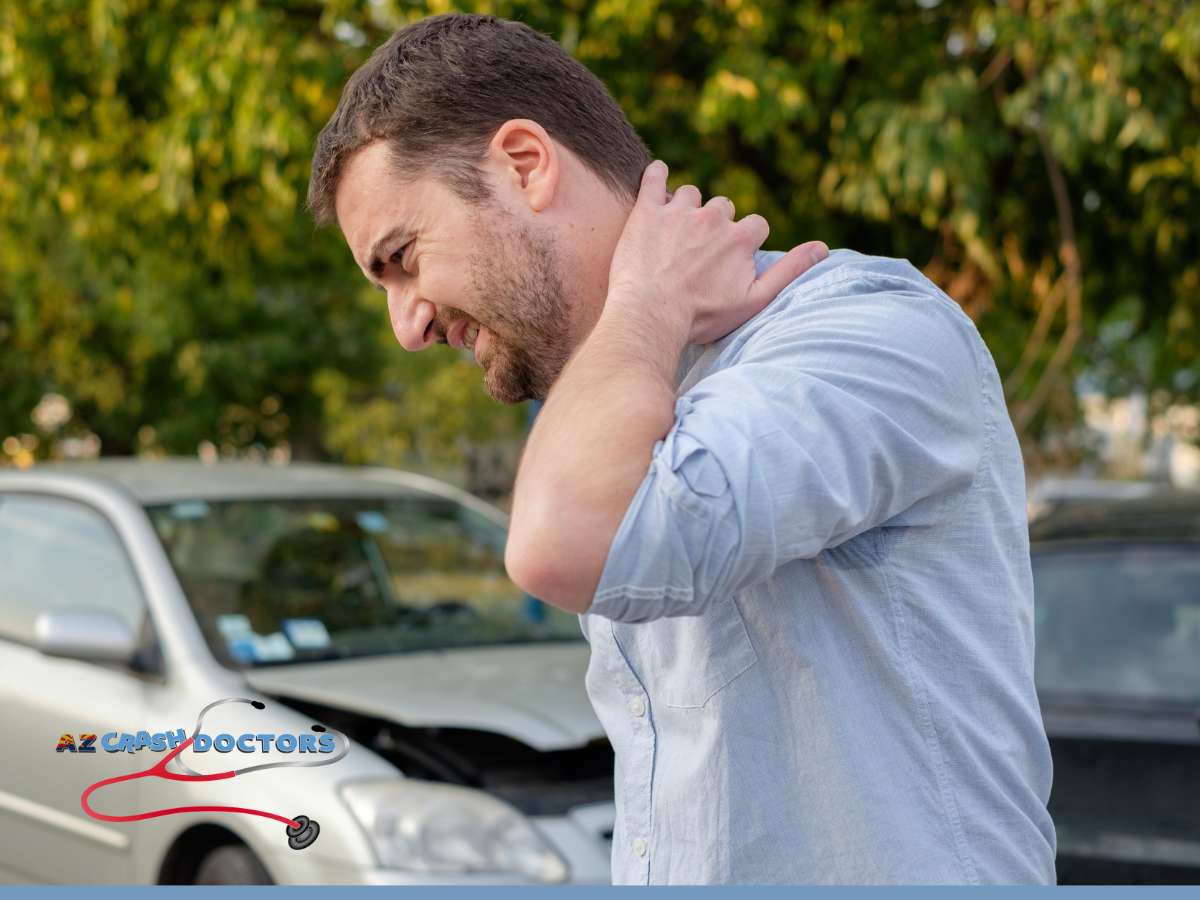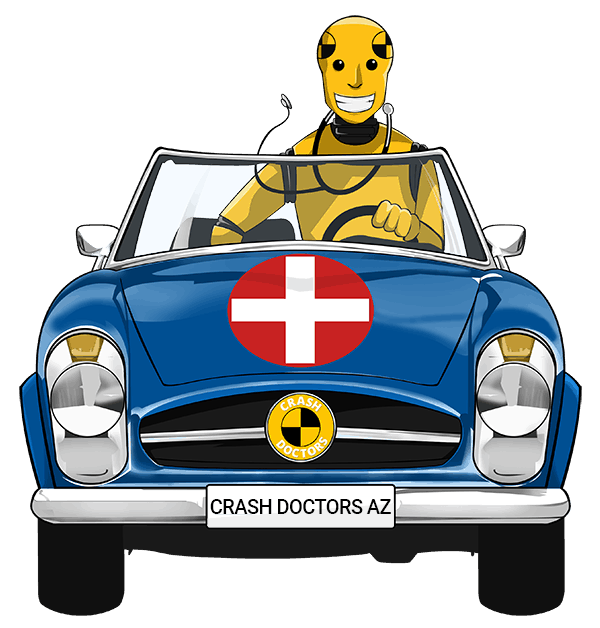The Importance of Pain Management After a Car Accident
Navigating life after a car accident can be a challenging journey, and effective pain management is crucial for a smoother recovery process. In such situations, seeking professional help from an auto accident chiropractor becomes essential. But why is pain management so important?
When injuries occur, the aftermath often involves not only physical discomfort but also emotional and mental stress. Addressing pain promptly is essential to prevent long-term complications and promote overall healing.
In this post, we’ll explore the various aspects of pain management, from chiropractic techniques to lifestyle adjustments, shedding light on the role it plays in the holistic recovery process after a car accident.

Understanding Pain Management: A Holistic Approach to Recovery
Pain management is a multidisciplinary approach created to improve the quality of life for people experiencing pain. It includes various medical, physical, and psychological strategies to alleviate and control pain, promoting overall well-being.
The primary goal is not only to minimize the intensity and discomfort of pain but also to address its underlying causes and enhance functionality.
Medical professionals specializing in pain management employ a range of interventions, including medications, physical therapy, and alternative therapies.
These interventions are tailored to the specific needs and conditions of the patient. In cases where pain results from injuries, such as those coming from a car accident, a comprehensive pain management plan may involve collaboration with specialists like auto accident chiropractors.
Chiropractors, in particular, play a significant role in pain management, using non-invasive techniques such as spinal adjustments to alleviate pain associated with musculoskeletal injuries.
Additionally, lifestyle modifications, exercise regimens, and counseling may be incorporated into a holistic pain management approach.
Why Pain Management is So Important After a Car Accident?
Pain management after car accidents is crucial for several reasons:
- Preventing Chronic Pain: Timely management minimizes the risk of acute pain becoming chronic, fostering a smoother recovery process.
- Enhancing Recovery: Effective pain management supports faster recovery by allowing engagement in rehabilitation activities crucial for healing.
- Improving Quality of Life: Alleviating physical discomfort enhances daily functioning and well-being.
- Addressing Underlying Issues: Comprehensive pain management identifies and treats the root causes of pain for sustainable results.
- Preventing Complications: Managing injuries prevents secondary issues like stiffness and reduced mobility.
- Promoting Mental Well-Being: Mitigating pain’s psychological impact contributes to better mental health.
- Facilitating Functional Recovery: Pain management interventions, including tailored exercises, help regain functionality.
- Tailored Treatment Plans: Specialists create personalized plans aligning with the specific nature of car accident injuries.
How Can I Know When It’s Time For Pain Management?
Recognizing when it’s time to contact a car accident chiropractor or get a pain management plan involves paying attention to persistent discomfort, especially if it interferes with daily life.
Here are some indicators that suggest you need pain management:
- Chronic Pain: If pain persists for an extended period, typically beyond three to six months, despite conventional treatments, it’s time to explore pain management options.
- Limited Functionality: When pain restricts your ability to perform routine activities, hinders mobility, or affects your overall quality of life, seeking professional pain management guidance becomes crucial.
- Dependence on Medications: Reliance on pain medications for an extended period may indicate the need for a more comprehensive pain management plan that addresses the underlying issues.
- Post-Injury Pain: If you’ve experienced an injury, such as in a car accident, and pain continues or resurfaces after initial treatments, it’s advisable to contact a pain management specialist.
- Impact on Mental Well-Being: Persistent pain often takes a toll on mental health, leading to conditions like anxiety or depression. If your emotional well-being is affected, it’s time to consider a holistic pain management approach.
- Ineffectiveness of Current Treatments: If conventional treatments like rest, ice, or over-the-counter medications are not providing sustained relief, a pain management plan tailored to your specific needs may be necessary. A car accident chiropractor is the best option for this.
Recognizing the Impact Of Common Key Injuries From Car Accidents
Car accidents can result in a range of injuries, varying in severity. Some of the most common are:
- Whiplash: A sudden jolt to the neck and head, often in rear-end collisions, can cause whiplash. It leads to neck pain, stiffness, and sometimes headaches.
- Fractures: Bones can break upon impact, especially in high-velocity collisions.
- Soft Tissue Injuries: Damage to muscles, ligaments, and tendons can occur.
- Concussion: A traumatic brain injury caused by a blow to the head or violent shaking, resulting in temporary cognitive impairment and possible long-term effects.
- Cuts and Abrasions: Broken glass and debris in an accident can cause cuts, scrapes, and bruises.
- Chest Injuries: Impact on the steering wheel or airbag deployment can cause chest injuries, including contusions and fractures.
- Spinal Cord Injuries: Severe accidents may damage the spinal cord, leading to paralysis or loss of sensation.
- Internal Injuries: Blunt force trauma can harm internal organs, such as the liver, spleen, or kidneys, and may not be immediately apparent.
- Knee Injuries: The impact against the dashboard or door can result in knee injuries, including fractures and ligament damage.
- Psychological Injuries: Emotional distress, anxiety, and post-traumatic stress disorder (PTSD) are common psychological consequences of car accidents.
It’s crucial to seek medical attention from an auto accident chiropractor after an accident, even if injuries seem minor initially, as some symptoms may appear later. Consulting with healthcare professionals, including chiropractors and pain management specialists, can help address and manage the aftermath of these injuries.
Seeking Professional Help From Avondale Car Accident Chiropractors
Whether it’s addressing underlying issues, preventing complications, or promoting mental health, a complete pain management approach is key. Get in touch with AZ Crash Doctors for personalized and comprehensive care.

AZ CRASH DOCTORS
18477 S 186th Way #101
Queen Creek, AZ 85142
Tel: 480-618-680
Email: [email protected]
Arizona Car Accident Doctors
1107 S Gilbert Rd UNIT 111
Mesa, AZ 85204
Tel: 480-618-6800

